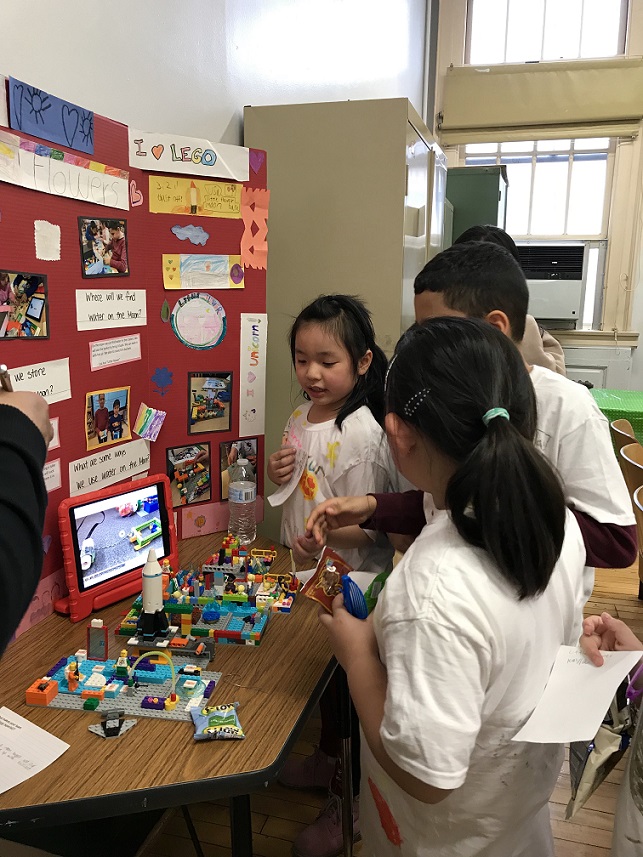
Immigrant Social Services Helps Children of Immigrants to Thrive and Be Resilient
Immigrant Social Services, Inc. (ISS) serves as a bridge between cultures for the children of immigrants. It can be confusing for children to have one language and culture at home, and another outside of the home and in school. ISS helps children preserve the culture of home, while helping them to navigate the sometimes confusing wider world outside the home. This is a population that, in some ways, needs our help more than others, to prevent these children from feeling alienated, which could affect their ability to stay in school and get ahead. As such, we felt it important to give ISS an assist with one of our small grants.
We wanted to know more about how ISS is helping children and what we can do to emulate the success of this organization. So we sat down for a virtual chat with Executive Director of Immigrant Social Services, Inc. (ISS) Beatrice Chen. Here is what she had to say about the work of ISS:
Kars4Kids: Tell us about the population you serve.
Beatrice Chen: We serve children and youth who attend public schools in Manhattan’s Chinatown/Lower East Side, the majority of whom are from low-income immigrant households with limited English proficiency.
Kars4Kids: How many children are registered in your programs?
Beatrice Chen: Each day, about 550 students from PreK to 8th grade participate in our afterschool programs at public school sites in Manhattan’s Chinatown/Lower East Side.

Kars4Kids: What are some of the cultural issues faced by the children you serve?
Beatrice Chen: Most of the children we serve are first generation Americans, and as children of immigrants, they are growing up between multiple cultures that may not necessarily have shared references, values, nor expectations. Navigating among them can be challenging and present an additional stressor for the child, leaving them more vulnerable to alienation, peer pressure, and lack of commitment to school. In our afterschool program, we make sure to provide opportunities for them to explore and express their individual and community identity and to give students the tools to become more resilient.
To this end, we also prioritize culturally responsive communication with parents or guardians, mindful that they may not be familiar with the norms and expectations here. For example, the expectations of the respective roles of the school, the teacher, and the parents in a child’s education is different between the States and China. We provide the parents or guardians with contextual knowledge with the goal of empowering them to make informed decisions for their children and to advocate for themselves.

Kars4Kids: The ISS website highlights “study skills and strategies” as a focus of your afterschool program. Can you describe some examples of what this would include?
Beatrice Chen: The focus on “study skills and strategies” is really about cultivating a mindset that enables students to be 1% better each day and to reach their full potential. A specific example would be a session on goal-setting that would incorporate students reviewing what they have already accomplished and think about what they would like to accomplish in the future, in both the short- and long-term. With each goal, students also have to figure out the activities that they need to do to reach their goal and when they want to reach that goal. We also introduce tools and tips such as habit trackers, checklists, and color-coding systems that can help them reach their goals in school, and in life.
Kars4Kids: How do you keep your afterschool program from feeling like more school? Is that an issue?
Beatrice Chen: The afterschool program setting occupies an informal learning space, while the school setting is a formal learning environment where direct instruction is perhaps the most common approach, but we are all part of the same ecosystem that enables the children and youth we serve to thrive and be resilient. I see our role as an afterschool program provider as complementary to the school, the home, and the community.
I encourage our afterschool program staff to think of themselves as facilitators of learning (rather than instructors) who strive to foster the joy of learning in our children. Imagine each child arriving at school each morning, excited and motivated to learn! Afterschool programs can definitely contribute towards this. I also believe that learning is a lifelong endeavor as well as a social endeavor, and the afterschool program setting allows us to implement enriched educational experiences that prioritize these guiding principles.
Kars4Kids: ISS offers Lego Robotics. Why has this become such a popular activity?
Beatrice Chen: I have never met a child who doesn’t find Lego engaging, even in this age of mobile devices. There’s still something very satisfying about the tactile nature of those Lego bricks and building something you dreamed up with your own hands. LEGO Robotics make tangible STEM concepts that may seem abstract or harder to grasp. When facilitated well, Lego Robotics can be the ultimate youth interest-driven experiential and collaborative learning experience. Giving students agency is indeed a powerful motivator to learning.
Lego Robotics also hones many of the skills that prepare students to thrive in the future (and what employers and college admissions officers look for!), such as creative problem-solving, critical thinking, communication, and teamwork. I also think this process of continuously iterating, improving, and innovating that is a key component of Lego Robotics and STEM is an essential habit to cultivate for the 21st century human.

Kars4Kids: What’s next for Immigrant Social Services?
Beatrice Chen: This spring, ISS will open an upgraded facility at 137 Henry Street in the Lower East Side of Manhattan. The newly renovated 4-story headquarters will be fully accessible with an elevator and include a multimedia technology lab, a performance space with a stage, and flexible classroom spaces that allow us to expand our programs and services for the community.